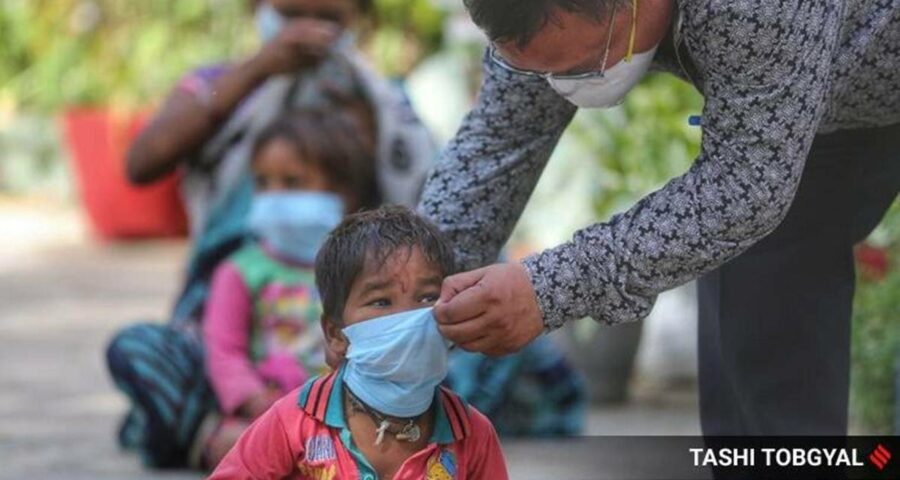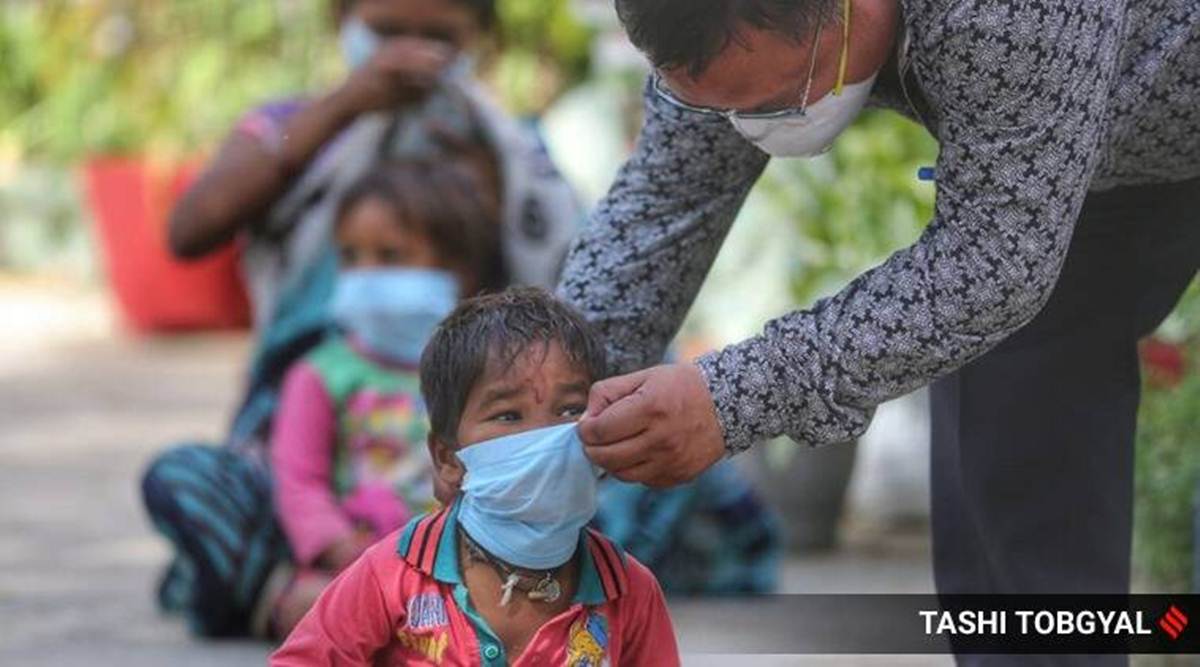Over 1.2 lakh children in India are estimated to have lost a parent due to the pandemic.
Seven-year-old Rahul had been living with his father in one of Mumbai’s thickly habituated chawls. He lost his mother when he was a toddler, and the father-son duo was somehow managing life on their own, with sundry help from neighbours and friends since their extended family lived back in the village in Bihar. However, things took a tragic turn as Rahul’s father had to be hospitalised due to Covid-19 in April this year. Two days later, as his father passed away, the virus took away the only family this little boy had. He had no one to care for him and ensure he was fed. He was left to fend for himself in the tiny family apartment.
Even as the neighbours were concerned for him, they were too scared to get caught up in the bureaucracy and even more afraid of contracting the virus owing to the deadly second wave that had hit the country at the time. As all this happened, Rahul didn’t know that his father had passed away and no one knew how to break the news to him. Some neighbours left food outside his door as they were apprehensive of helping him in person.
One of them was incidentally aware of a Mumbai-based child welfare NGO and called the Akancha Child Rescue helpline to share Rahul’s situation. He was requested by the NGO representative to keep an eye on the boy till they informed the local police station. Soon, members of the Child Welfare Committee arrived, but before that, as per protocol, his Covid-19 test had to be done and that took another two days till Rahul could be taken under their wings.
“Even as the young boy is now in safe hands, thousands of children in India have lost one or both parents to COVID. Known as COVID orphans, they have no one to turn to and are extremely vulnerable to trafficking, transactional sex, poverty and child labour,” says Akancha Srivastava, founder of the NGO.
Over 1.2 lakh children in India are estimated to have lost a parent due to the pandemic. Globally, over 15 lakh children are believed to have experienced the death of at least one parent or a custodial or a co-residing grandparent, or other older relative. Out of the 15 lakh, from March 1, 2020, to April 30, 2021, the study estimated that 11,34,000 children lost a primary caregiver, a Lancet study released in July estimated. It said that more than 25,000 children in India lost their mother to Covid-19 while over 90,000 lost their father and 12 lost both their parents.
In fact, the Supreme Court has pulled up the Centre on taking care of Covid-orphans. It had said in May that precious time was being lost as children orphaned, abandoned and traumatised by the COVID-19 pandemic were starving without food on the streets of “this large country”. The apex court ordered district authorities across the country to immediately fan out and identify these children in need of care and provide them with basic needs like food, shelter and clothes.
In the same month as Rahul’s case came to Srivastava, a passerby noticed an intellectually disabled girl lying on a railway station platform in Prayagraj. Seeing a lot of men standing around, passing comments on the child, the woman became worried and called Srivastava to report the situation, who requested the woman to stand by while she arranged help. “I asked the reporter to share a video of the child, which I then posted on Twitter, tagging the DGP of Uttar Pradesh, and the chairperson of NCW, among others,” she says, adding they have rescued more than 20 such children so far. She has now launched a dedicated helpline for Covid-orphans, in view of the flood of distress calls she has been receiving about children in need of help.
Meanwhile, Srivastava also started an online fundraiser for Rahul’s education, therapy and financial security at ImpactGuru.com. Luckily for the boy, 100 per cent of the funds were raised in a matter of 57 days. Piyush Jain, Co-Founder and CEO, ImpactGuru.com, says, “A fundraiser page was launched on ImpactGuru.com to raise funds for ‘Akancha Child Rescue’ initiatives. Crowdfunding is an alternative method of raising funds online for any social cause, with the individual (or his/her friends or family) primarily relying on social media networks to mobilise donors to finance the relevant bills. We have a dedicated team of Campaign Managers assigned to fundraisers of each category (Medical, NGOs, Personal causes), who check on the credibility and authenticity of the campaign. We even coach people on how to fundraise effectively. Akancha Child Rescue raised Rs.10.13 lakh from 231 donors.”
For fundraisers put up by NGOs, Jain says, they do a basic check on registration documents. “We ensure every fundraiser goes through a due diligence process and is vetted by our team, post which fund transfer takes place,” he says, adding they provide detailed fund utilisation updates on each fundraiser page on a timely basis to ensure donors are updated on the progress and the final outcome of the fundraiser.
Srivastava says the problem with children above 7-8 years of age is that people generally prefer to adopt younger children. “The boy is aware about the current situation and is in a secure space where he is getting therapy and guidance. As of now, we haven’t planned for any adoption and cannot comment on other developments. Our aim is to comfort him, give him love and boost his confidence. We are in contact with his extended family, and are discussing everything with them to help the child in every possible way,” she added.
(*Name of the boy has been changed to protect identity)
Source: Read Full Article


